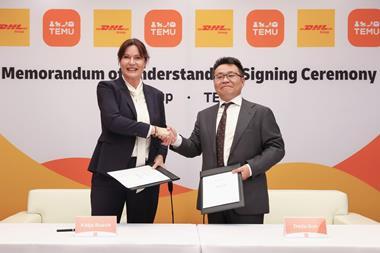
Hong Kong-based freight forwarder U-Freight is continuing to develop logistics solutions for the e-commerce sector after having observed its growth in the last few years.
According to UNCTAD, the UN’s trade and development body, global e-commerce sales reached $25.6tr in 2019 — an 8% increase from 2017 — and this was estimated to be the equivalent to 30% of global gross domestic product (GDP) that year.
U-Freight said that these latest statistics from UNCTAD are a further vindication of its decision to enter the sector several years ago.
U-Freight's chief executive, Simon Wong, said that the company’s development of e-commerce logistics solutions tires to address key issues stemming from the exponential growth in volumes of business-to-business (B2B) and business-to-consumer (B2C) e-commerce shipments.
Examples of U-Freight's efforts include investment into warehouse facilities to develop them into e-commerce fulfilment centres.
"We are a logistics partner of choice for the growing number of online channels and platforms which entrepreneurs are using to sell their own designs and products, including global e-commerce shipping platforms such as Easyship, and we are heavily involved in the Fulfilment by Amazon programme in several countries," said Wong.
"Last year, we launched e+Solutions, a new product to assist small businesses with their e-commerce logistics needs.
"All of these initiatives are helping us boost efficiency and capture more value, in order to capitalise on the opportunities that e-commerce is presenting," he added.
UNCTAD also reported that China had the largest number of online shoppers (610 million), and while the bulk of online shoppers mainly bought from domestic suppliers, some 330 million online shoppers had made cross-border purchases in 2018.
“For several years, U-Freight has been qualified by Chinese customs and CIQ (China Inspection and Quarantine) as a licensed cross-border e-commerce enterprise; and as a cross-border e-commerce logistics service provider,” said Wong.
“The [UNCTAD] report states that the leading B2C e-commerce companies are based mostly in China and the US," Wong added. "Developing and transition economies accounted for about half of the top 20 economies by B2C e-commerce sales in 2018."










